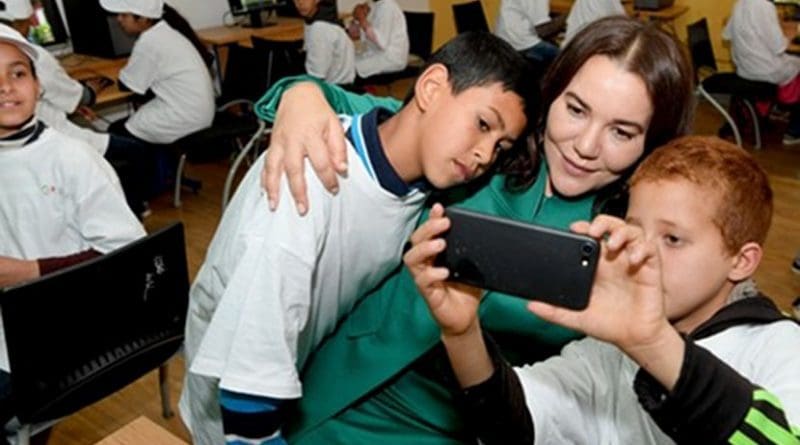Morocco: Eco-Schools Program Focuses On Sustainable Development Education – OpEd
Princess Lalla Hasna of Morocco has always recalled the paramount importance of education for sustainable development, today essential lever to deeply change the behavior of citizens and face the challenges of global warming. This level embodied in article 6 of the United Nations Framework Convention on Climate Change (UNFCCC) and article 12 of the Paris Agreement underscores the importance of education, training, public awareness, public access to information and international cooperation to effectively combat climate change.
Efforts made in the field of education for sustainable development have become the mandatory matrix of any action in favor of the environment. The difficulties faced by governments in changing current behavior lead to the view that education will rapidly induce the necessary inflection.
To strengthen this commitment, Princess Lala Hasna, President of the Mohammed VI Foundation for Environment Protection, visited, Friday in Ain Aouda (Skhirat-Temara prefecture), the “Al Masjid” Eco-School, on the occasion of the 12th year of the Eco-Schools Program, one of the Foundation’s levers to make sustainable development education an integral part of kids’ education.
During this visit, Her Royal Highness talked with pupils from the school’s monitoring committee, kids aged 5 to 12 and who have been active since the year 2010 when their school joined the Eco-Schools Program. They showed HRH Princess Lalla Hasnaa some daily eco-gestures and good practices they use for water management and energy saving.
The students discussed with Her Royal Highness climate and energy issues through an online game by the Foundation aimed at raising the awareness of children about these problems.
The kids also showed Her Royal Highness their interest in preserving biodiversity by presenting aromatic and medicinal plants they have planted in the school’s garden.
HRH Princess Lalla Hasnaa inquired about initiatives taken by the students to recycle waste of their establishment and save water in the school’s garden via the use of a drip irrigation system with PET bottles.
The Al Masjid school is an a good example of the Eco-Schools Program. The commitment of its students enabled it to obtain the green flag since 2012, the highest distinction of the program, and to renew it every year since then. Mobilized by the monitoring committee, the 171 students divided into six classes discussed the different themes of the program.
In 2012, they dealt with waste management and food, and in 2013 and 2014, they addressed two other issues: energy and biodiversity.
The students of the “Al Masjid” Eco-School are now working to spread their experience in their surrounding and other institutions. They made, with the help of the “Sourire d’espoir” Association, a guide of the ecological student.
Thanks to networking led by the Foundation to disseminate experiences and best practices, the school united in 2018 with another rural school, the “Lboura” Eco-School of Taroudant, Green Flag since 2013, with which it shares a game on the electrical consumption of household appliances, made with recycled materials.
Today, nearly 1,925 schools come under this program, 262 of which have the Green Flag or one of its intermediate certificates. This network represents more than 717,853 eco-students supervised by 28,765 coordinators trained by the Foundation and the Ministry of Education.

